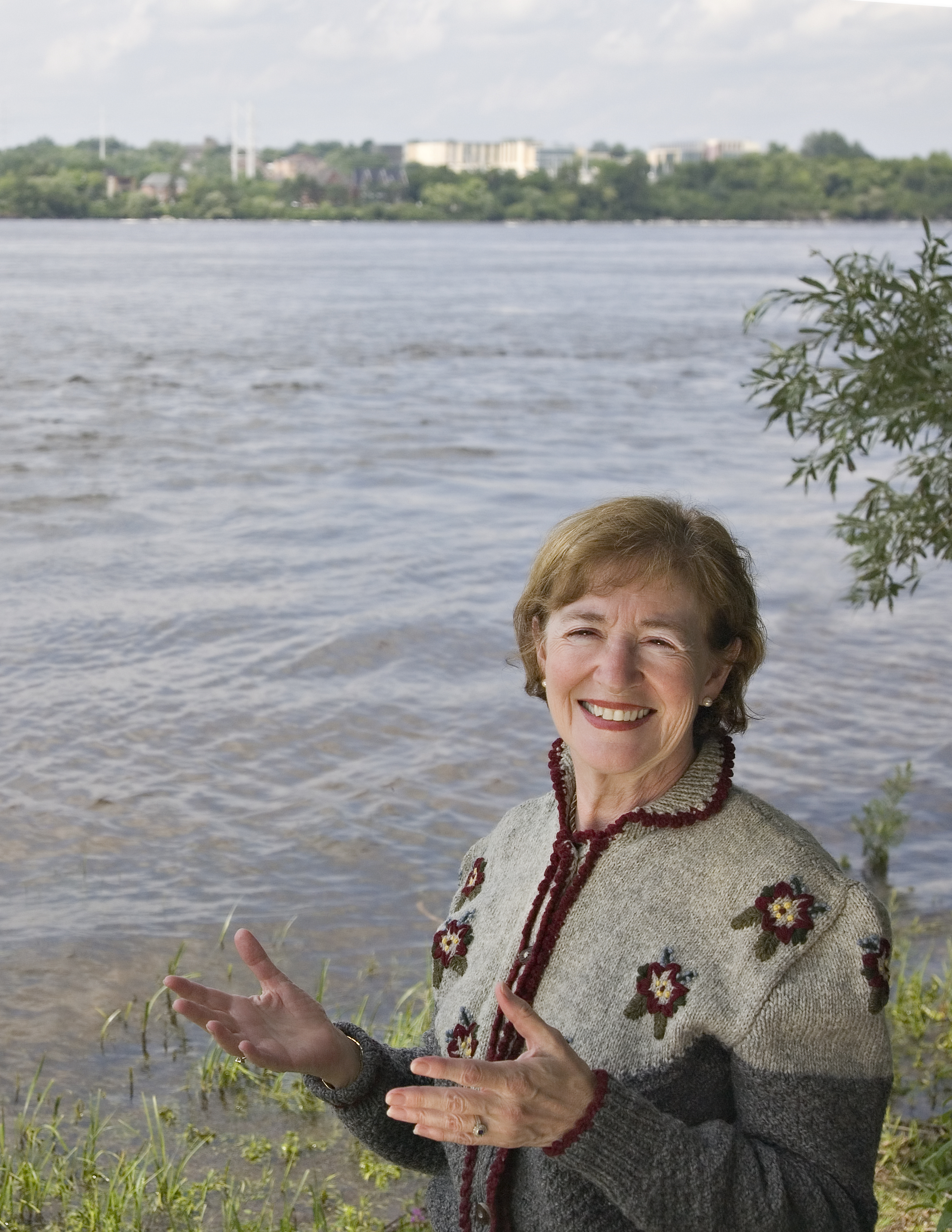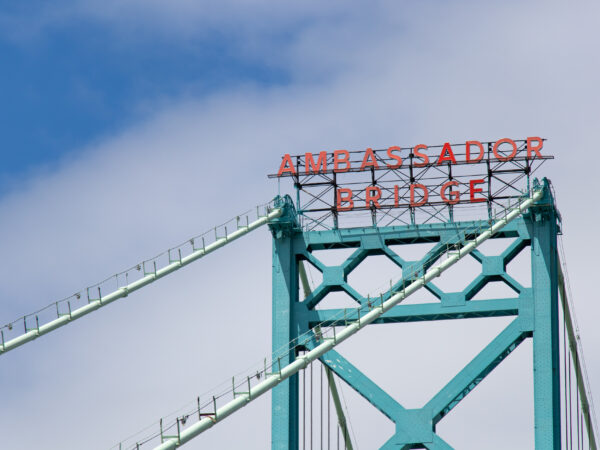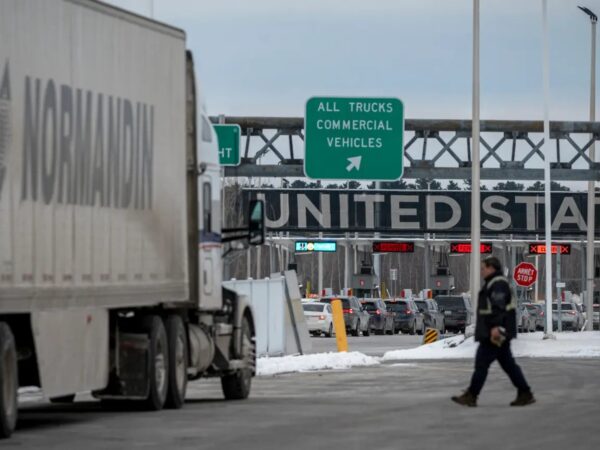
Canada took the next step in its effort to achieve zero plastic waste by 2030 last week when it announced a ban on certain single-use plastic items that its environmental protection and policy agency says are not often recycled.
The ban includes check-out bags, straws, stir sticks, six-pack rings, cutlery and foodware items, according to a press release from Environment and Climate Change Canada.
The action is based on Canada’s 2018 zero plastic waste strategy designed to “eliminate plastic waste as part of Canada’s larger move to a more circular and low carbon economy.” The goal of the strategy is to promote design of items for reuse instead of being discarded.
“This proposed ban will help drive innovation across the country as new and easier to recycle items take their place in our economy,” said Jonathan Wilkinson, minister of Environment and Climate Change Canada, in the press release.

Jonathan Wilkinson, Minister of Environment and Climate Change Canada. (Photo courtesy of Environment and Climate Change Canada)
ECCC also announced that “plastic manufactured items” will be added to a list under the Canadian Environmental Protection Act designating them as toxic, which the agency described as a “necessary regulatory step to managing plastic products.”
A plastics industry executive disputed the necessity of the toxic designation.
“Plastic is an inert material. It’s not toxic,’ said Elena Mantagaris, vice president of the plastics division for the Chemistry Industry Association of Canada, as reported by the National Post.
Great Lakes impact
The Canada-U.S collaborative Council of the Great Lakes Region supports EEEC’s zero plastic waste 2030 initiative, President and CEO Mark Fisher told Great Lakes Now. The plan includes new national targets for recycling content and increased responsibility for industry to pay for and manage recycling systems, he said.
But Fisher does not support designating plastic as a toxic substance.

Mark Fisher, president and CEO of the Council of the Great Lakes Region
“We do not believe plastic should be designated as a toxic substance under the Canadian Environmental Protection Act so that a ban on certain plastic products can be implemented,” Fisher said.
Fisher cited the possibility of unintended consequences by shifting to alternatives like paper bags which, Fisher said, studies have shown could be more damaging to the environment on a life-cycle basis.
A 2016 Rochester Institute of Technology study reported that 22 million pounds of plastic debris from the U.S. and Canada ends up in the Great Lakes annually.
“Plastic accounts for approximately 80% of the litter on the shorelines of the Great Lakes,” according to the study. Currents and wind determine where plastic pollution ends up in the Great Lakes, but Chicago, Toronto, Cleveland and Detroit release more plastic than accumulates on their shores, the study said.
ECCC’s spokesperson Samantha Bayard cited a $553,000 “investment” in Fisher’s Council of the Great Lakes Region as specific Great Lakes-region work focused on plastic pollution.
Not specific to plastic or preventing pollution, the U.S. Environmental Protection Agency has a Trash Free Waters program aimed at “reducing the impacts of human activities such as trash, litter, and debris in the Great Lakes,” according to the agency’s website.
Recent grant recipients included $300,000 each to Chicago’s Alliance for the Great Lakes for its Adopt-a-Beach program that expects to remove 100,000 pounds of garbage from Great Lakes beaches, and the Belle Isle Conservancy to form a coalition that would remove 30,000 pounds of trash from the Detroit River.
Bottled water not on list
Absent from the list of banned items are plastic bottles designed for bottled water. In Ontario, it’s estimated that 1 billion plastic water bottles annually are not recycled and end up in landfills, according to the watchdog group, the Council of Canadians.
Plastic bottled water didn’t make the list because it didn’t meet the criteria for being problematic, Bayard told Great Lakes Now in an email.
“While plastic water bottles are found as litter in the environment, they have high recycling rates due to provincial and territorial deposit systems and other programs. These measures and others are more appropriate to manage plastic water bottles,” Bayard said.
Bayard did not cite a bottled-water recycling rate, but less than 10% of plastic in Canada is recycled.

Maude Barlow, former chairperson, Council of Canadians (Photo by the Council of Canadians)
Veteran Canadian and United Nations water rights advocate Maude Barlow expressed outrage at the absence of single-use plastic water bottles from the list.
This list “is an abdication of the commitment we expected and hoped for,” Barlow told Great Lakes Now.
Barlow said the world is drowning in plastic water bottles with a million sold every minute yet the Canadian government allows their continued consumption, which will amplify the plastics crisis many times over.
In an opinion column in Canada’s National Observer last week, Barlow bolstered her case for the ban on single-use plastic water bottles.
“A ban on single-use plastic water bottles would go a long way to meeting our commitment to reduce our plastic footprint, lower the carbon footprint of producing the plastic in the first place and serve our commitment to protect clean water in a world where it is rapidly running out,” Barlow wrote.
Environment and Climate Change Canada is accepting comments on its plastic initiative until December and expects to finalize regulations by the end of 2021.
Read more news on plastic on Great Lakes Now:
Unchanged Mission: Activists say a Nestle Great Lakes exit doesn’t resolve bottled water issue
Chemical Hitchhikers: Great Lakes microplastics may increase risk of PFAS contaminants in food web
Balloon Effect: Survey highlights Great Lakes’ balloon pollution problem
Plastic Permanence: Research shows plastic becoming part of Great Lakes lakebed
API key not valid. Please pass a valid API key.Featured image: Rabbi Yosef Chesed, left, helps unload bottled water being donated from Lorie Lutz, right, at the Brightmoor Connection Food Pantry in Detroit, Monday, March 23, 2020. (AP Photo/Paul Sancya)



